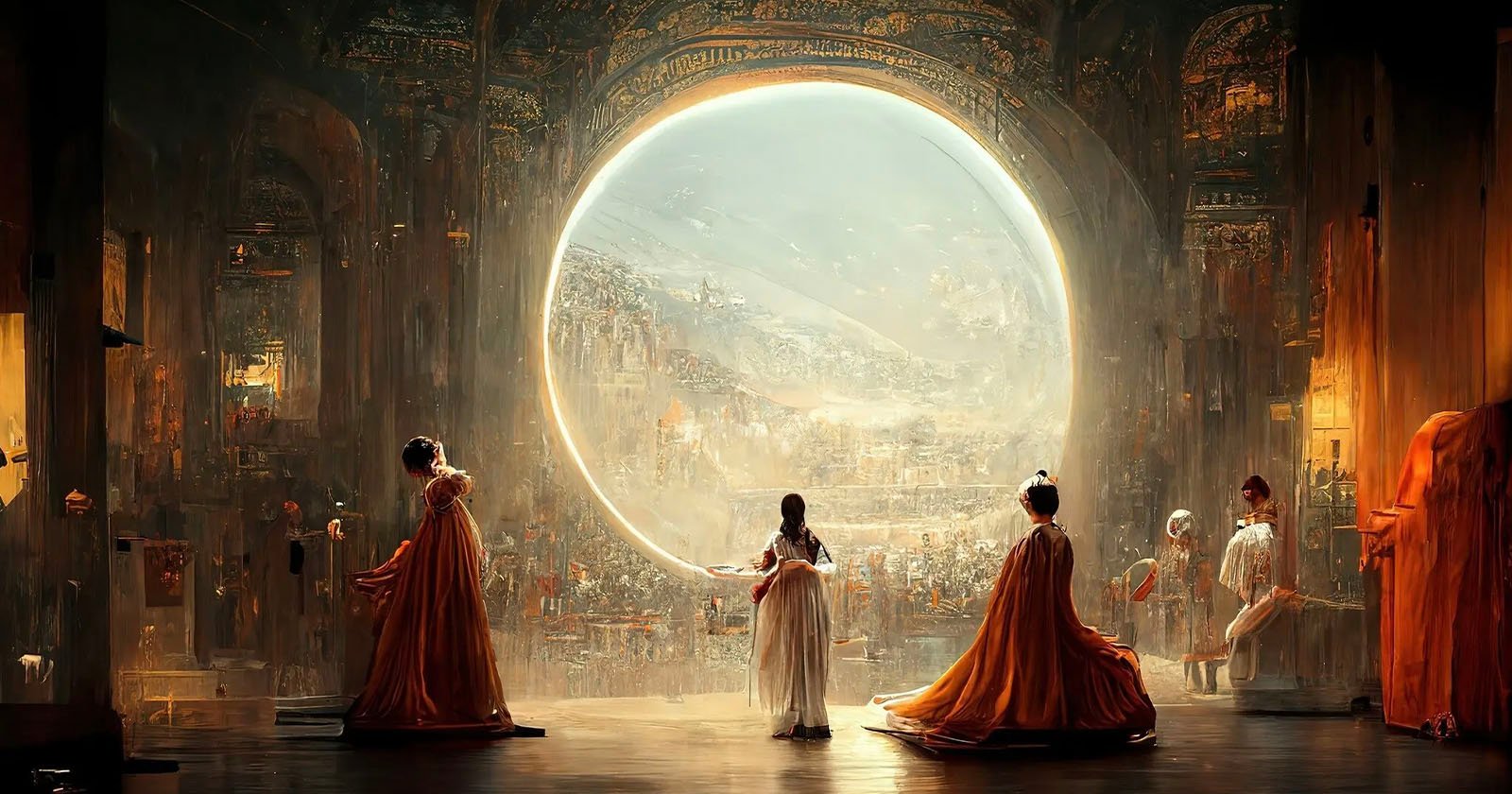An artist who infamously duped an art contest with an AI image is suing the U.S. Copyright Office over its refusal to register the image’s copyright.
In the lawsuit, Jason M. Allen asks a Colorado federal court to reverse the Copyright Office’s decision on his artwork Theatre D’opera Spatialbecause it was an expression of his creativity.
Reuters says the Copyright Office refused to comment on the case while Allen in a statement complains that the office’s decision “put me in a terrible position, with no recourse against others who are blatantly and repeatedly stealing my work.”



While some just snap a photo. And both are equally copyrightable
deleted by creator
If anyone deserves copyright over a photo, it’s the people that had their work photographed without permission. Then, the most deserving of the copyright are the camera and film manufacturers that made photography possible.
I think this is an angle that isn’t pften taken. The advent of photography was a very similar situation to the current advent of AI.
However, there are some crucial differences. For example, a photo can realistically be taken for personal use, which is either protected by law, or at least tolerated. AI, on the other hand, doesn’t have this going for it (you wouldn’t really go to the trouble of training an AI model for personal use). Even if the model and everything else is fully transparent and open source, it’s still gobbling up copyrighted data for commercial purposes - the model’s authors or the users’. Luckily, there is no AI fair use carveout (and I hope there won’t ever be one).
Another thing I’d like to point out: in the vast majority of european legal systems copyright isn’t called “Copyright”, but “Authors’ rights”, i.e. its primary purpose isn’t to restrict copying as much as it’s protect the interests of the author (not publisher/corporation, although this unfortunately got bastardised a while ago).
I can only hope the EU takes a reasonable approach to AI (that is, ban it from gobbling copyrighted work, require current “tainted” models be purged along with corporations paying reparations to the authors, as well as banning EULA clauses along the lines of “by signing up we get to feed all your information into the AI”).
By my first comment I was trying to point out the fact that the “time invested” argument isn’t that strong. That doesn’t mean there aren’t better arguments or that I don’t agree with the general idea, just that we need better arguments if we want to win this fight.
deleted by creator
deleted by creator
Removed by mod
Right, learning their techniques, not cutting out pieces of said master art and pasting it onto someone else’s work. There’s already predecent for this when that one monkey took a photo and the guy that provided the: camera, scene and direction was denied the copyright because he didn’t do the work.
https://en.m.wikipedia.org/wiki/Monkey_selfie_copyright_dispute
Removed by mod
There is a difference between studying techniques, ideology, history, and mediums to be able to use a style created by another artist in your own creative works, and putting all the creative end products into the ideas blender and churning out a product with no creativity and no intentionality to the application of the process. What’s the end game? At what point does human creativity become redundant and AI starts eating its own slop? Do human artists need to keep creating depictions of meaning or value or whatever else they find important to endlessly feed into the machine so it can duplicate them, missing any of the metaphor, subtext, and soul present in the original? At what point is it obvious that workers are having their labor stolen by the tech bro Soylent Green idea machine to enrich them at the expense of whoever’s life work they seemed to be slop worthy of regurgitation.
AI can be an excellent shortcut or a great tool, and help us make our work easier and products better, but it is not a creator of original creative works, and cannot be validated at the same level as human artists. I, for one, would like to see a future where artists don’t just exist to feed into their machine betters.
Removed by mod
Photography has far more depth, complexity, and creativity as an artform and comparing it to AI both misunderstands the process and does it a huge disservice. Even before lining up the shot, the photographer must choose the right focus length, exposure, and a number of other technical settings, then must choose a subject, perhaps modify the composition, and have the right timing.
Photography can be as simple as pointing a phone camera for a well timed moment or snapping a once in a lifetime shot with an expensive lens. AI art takes orders of magnitude less creativity or training to do well, because it’s stealing the work of people that have already learned the composition techniques and have done the legwork, which is just being shoddily regurgitated by the plagiarism machine.
Removed by mod
Way to entirely miss the point. Are you suggesting that the simplest form of an artform isn’t part of it? Apply that to literally every other artform. By your logic, jamming on basic chords on a ukulele in my living room isn’t music, and a kids stick figure drawing of their family isn’t art. You’re so concerned about being “correct” that you missed being right. Go back and actually read my comment for its meaning, not the pedantry. If this is how you engage with media, I understand why you would compare AI art and photography.